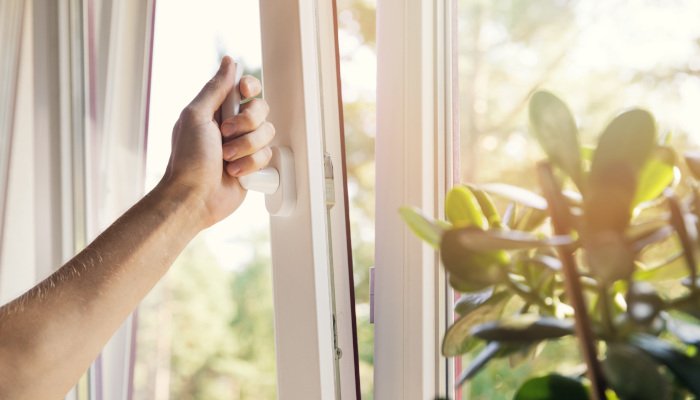When you think about air pollution, the first images that come to your mind are almost always smoggy city streets and highways, power plants and factories, and cars spewing diesel emissions. You’re also probably one of the many people who believe it’s safer to stay indoors, inside your home, right? Believe it or not, the quality of air in your home can be worse than outdoor pollution.
Indoor air pollution refers to gases, dirt, or dust that floats in the air inside a home or building. It makes the air you and your family breathe harmful. If your property has damp and mould caused by disrepair in your home, if it has poor ventilation and you store chemical solutions like paint and cleaning products, your indoor air is polluted. So, if you spend most of your time inside your house, you are exposed to contaminated air several hours a day.
Effects of indoor air pollution
Poor indoor air quality (IAQ) is considered a “silent killer” because you do not know that it’s there. Often, you won’t experience any symptoms. If you suddenly develop a cough, runny or itchy nose, a shortness of breath, or if you’ve been sneezing too much, it’s probably the polluted air in your home.
Severe effects of too much exposure to poor quality indoor air include cardiovascular and serious respiratory conditions.
Improving the quality of air in your home
In the UK, over 60% of homes have poor IAQ. To help address the issue, the National Institute of Health and Care Excellence (NICE) created the Indoor Air Quality at Home guide. It offers several suggestions on improving the quality of air in your home.
One of the best ways to improve indoor air quality is to find the source of the problem. However, if you’re planning to renovate or do some improvements to your home, it’s good to know what to do to protect your home from air pollutants.
If you’re renting from a private landlord or a council, be sure to inform them about your plans to renovate your home. Some landlords have restrictions when it comes to renovations and improvements. You have to assure them the changes you’re doing are minor ones and are within the scope of your obligations. Additionally, you may want to also inform them about the reasons why you are renovating, but you have to determine first if the disrepair in your home is yours or your landlord’s obligations.
Here are some of the simple practices that you can do to help prevent the indoor air quality of your home from deteriorating:
Find the cause of every problem
As mentioned above, it is important to identify the cause of the issue. So, if your goal is to repaint your wall or remove floor carpeting, find out what factors contributed to the situation. For example, there can be mould on the wall or flooring. Problems like this are usually caused by poor ventilation and too much moisture in your home. If the problem and repair or renovation is minor, you can do the work yourself. However, if the root cause involves major elements like structural damage, you need to inform your landlord.
Remove damp and mould
Mould infestation is dangerous not only for your home but also for your health. Prolonged exposure may lead to allergies and respiratory problems like asthma.
Before starting your renovation project, clean up areas with mould. Clean and replace absorbent materials like carpet and seal off plumbing leaks. Use water and detergent in removing mould from hard surfaces. Wipe these areas dry after cleaning.
Replace your ceiling tiles if they’ve been damaged by mould.
Refrain from using harmful materials
Repainting walls and ceilings are minor improvements, so you can do this yourself. Ensure you’re using safe materials. Look for paint that does not contain lead. It is also important to find out when the house or building you’re renting was built. If it was constructed prior to 1978, it may have been painted using lead-based paint. Repaint the house using a safer alternative. Exposure to lead dust will harm you and your family.
Additionally, refrain from using aerosols and look for eco-friendly options like unscented products when cleaning. For example, if you need to light candles, choose to use the unscented variety as they have lesser pollutants.
Ensure your neighbours and other occupants are not exposed to pollutants and odours while renovation work is going on.
Ventilation is essential
If your rented home is on the 4th or 5th floor of a building and does not have enough windows, you should find a way to add ventilation. One way to do this without stepping on your landlord’s obligations is to install exhaust fans—in the kitchen or bathroom.
Disrepair problems
If the need to renovate your home is caused by disrepair which is affecting your air quality, get in touch with your landlord. If your landlord keeps ignoring repair requests after 21 days, you can file a disrepair compensation claim. Talk to the experts at DisrepairClaim.co.uk so you’ll know what steps you need to take.

